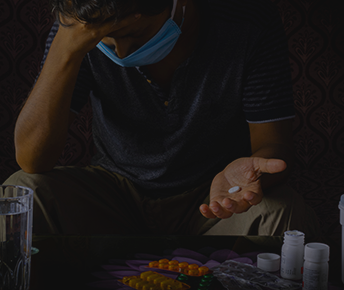Introduction
Self-medication has become a typical response for individuals grappling with stress, anxiety, emotional dysregulation, or other mental health challenges. The use of recreational drugs or alcohol to cope with emotional pain or discomfort may seem like a quick fix, providing temporary relief from overwhelming feelings. However, self-medicating can quickly spiral into substance use disorder, turning casual use into a severe addiction.
This article explores the dangers of self-medication, how recreational drug use can escalate into dependency, the importance of recognizing the signs of addiction, and the role of therapy and professional help in breaking the cycle of addiction.
What is Self-Medication?
Self-medication is the act of using substances—such as drugs, alcohol, or even prescription medications—without the guidance of a healthcare professional to manage emotional or psychological issues. For many, self-medication begins as an attempt to escape emotional pain, stress, or anxiety. It may seem like a temporary solution, but it comes with significant risks.
The Risks of Recreational Drugs
Recreational drugs, such as marijuana, cocaine, or opioids, can provide a temporary escape from anxiety, depression, or other emotional difficulties. Unfortunately, what starts as occasional use can quickly lead to dependency and addiction.
Tolerance and Dependency
Over time, the body becomes accustomed to the presence of the drug, requiring more to achieve the same results.
Emotional Dysregulation
While drugs may temporarily relieve emotional distress, they impair an individual's ability to regulate emotions effectively.
Worsening Mental Health
Recreational drugs often exacerbate mental health problems, creating a harmful cycle.
Escalation from Recreational Use to Addiction
Initial Use
Using recreational drugs to manage occasional stress or emotional pain, such as drinking alcohol after a difficult day.
Increased Use
Using substances more frequently to cope with stress, anxiety, or negative emotions.
Tolerance and Dependence
Needing higher doses to achieve the same effect and feeling unable to cope without the substance.
Addiction
Substance use becomes compulsive, with negative effects on physical health, relationships, and overall well-being.
Early Signs of Dependency
- Increased Tolerance: Needing more of the substance to achieve the same effect.
- Emotional Dependence: Relying on substances to cope with negative emotions.
- Loss of Control: Struggling to limit substance use.
- Neglecting Responsibilities: Avoiding responsibilities at work, school, or home.
- Withdrawal Symptoms: Experiencing physical or emotional withdrawal symptoms.
- Continued Use Despite Consequences: Using substances despite negative outcomes.
Emotional Abuse, Trauma, and Self-Medication
For many, unresolved emotional trauma or abuse is a root cause of substance abuse. Individuals may use substances to numb painful memories or emotions, which only masks the pain temporarily.
Coping Mechanisms and Treatment Options
Cognitive-Behavioral Therapy (CBT)
CBT helps individuals identify and challenge negative thought patterns while building healthier coping strategies.
Trauma-Informed Care
Trauma-informed therapy provides a safe environment to address unresolved trauma and its connection to substance use.
Developing Healthy Coping Mechanisms
- Mindfulness practices: Meditation, deep breathing, and relaxation techniques.
- Exercise and physical activity: Reduces stress and improves mental health.
- Support systems: Family, friends, and support groups.
Relapse Prevention Strategies
Relapse prevention focuses on recognizing triggers, managing cravings, and staying committed to long-term sobriety.
Conclusion
Self-medicating may provide temporary relief from emotional pain, but it leads to a harmful cycle of dependency and addiction. Recognizing the early signs and seeking professional help are critical steps in breaking this cycle.
How can Samarpan help?
At Samarpan, we address the dangers of self-medication and help individuals overcome substance addiction. Through professional therapy, mental health awareness, and holistic care, we offer comprehensive rehabilitation to build healthier, balanced lives.
























 Yes, many offer serene environments and solid therapeutic frameworks. However, quality varies, so it’s essential to research accreditation, staff credentials, and therapeutic depth.
Yes, many offer serene environments and solid therapeutic frameworks. However, quality varies, so it’s essential to research accreditation, staff credentials, and therapeutic depth.




